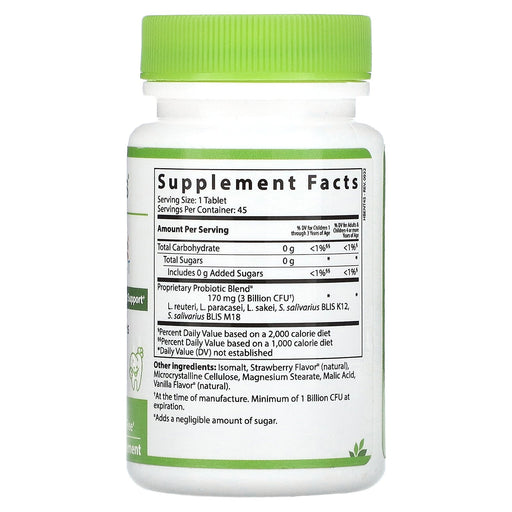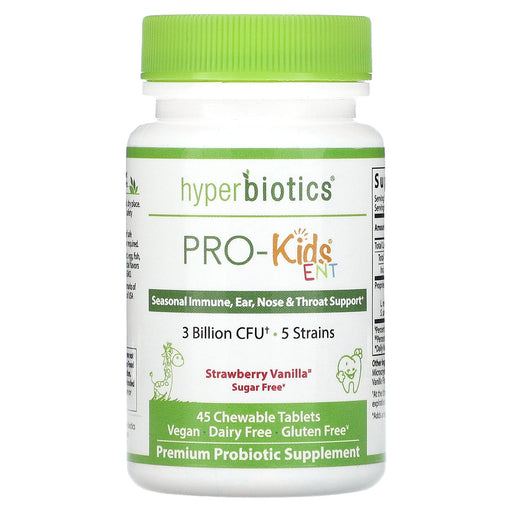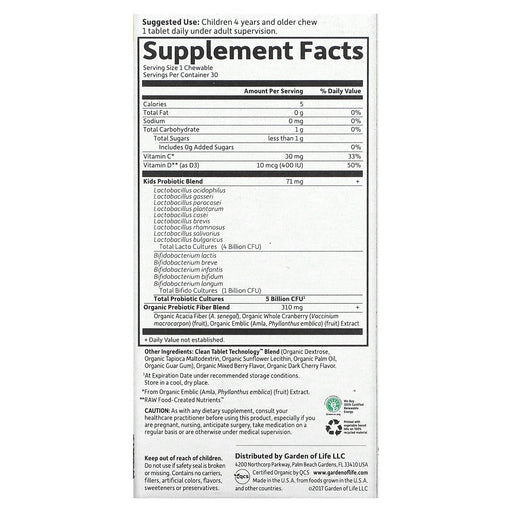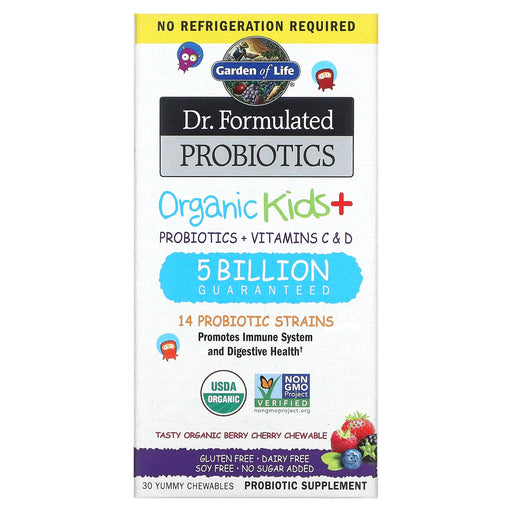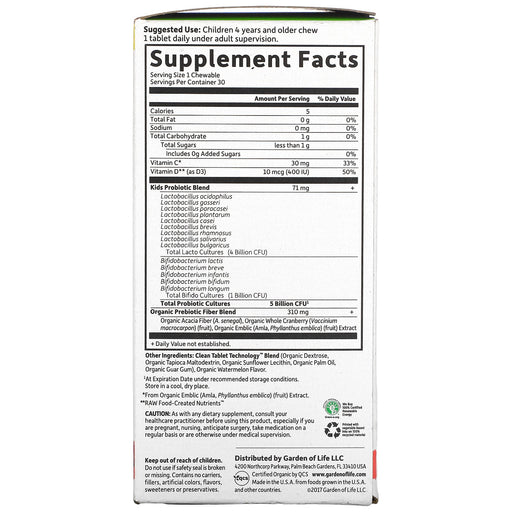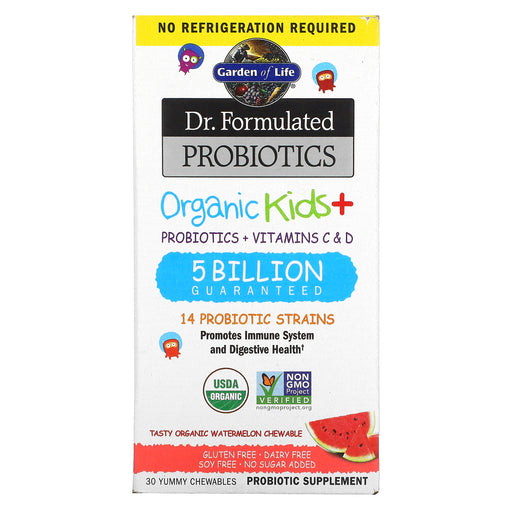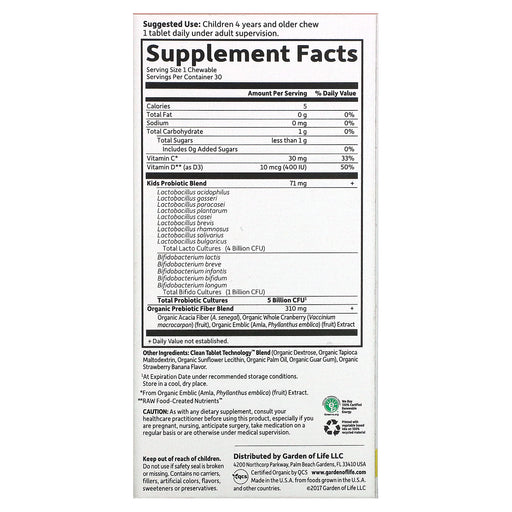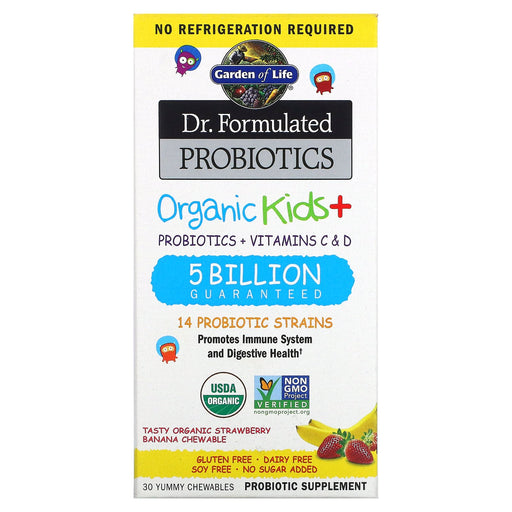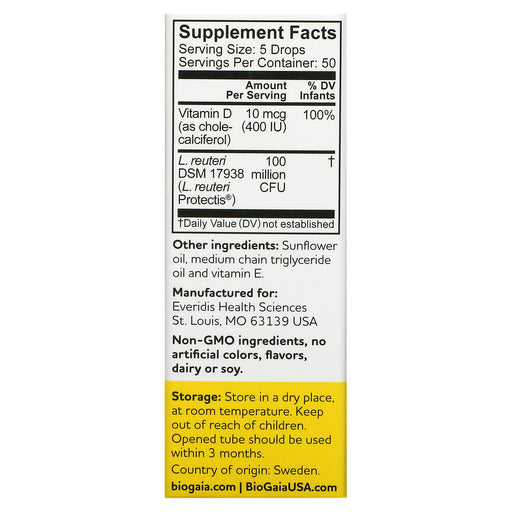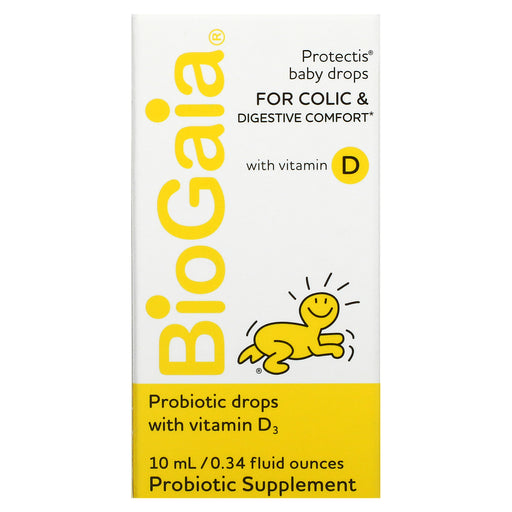
Nurturing Your Child's Digestive Health and Immunity with Probiotic Supplements
As a parent, you want to give your child the best possible start in life, and that includes supporting their digestive health and immune function. Children's probiotic supplements can help promote a healthy gut microbiome, enhance nutrient absorption, and boost your child's natural defenses against illness and infection.
The Importance of Probiotics in a Child's Health
Probiotics are beneficial bacteria that live in the gut and play a crucial role in maintaining digestive balance, supporting immune function, and promoting overall health. Some of the key benefits of probiotics for children include:
- Supporting Digestive Health: Probiotics help maintain a healthy balance of gut bacteria, promoting regular bowel movements, reducing digestive discomfort, and enhancing nutrient absorption.
- Boosting Immune Function: A significant portion of the immune system resides in the gut, and probiotics help support its function by stimulating the production of antibodies and enhancing the body's natural defenses.
- Reducing the Risk of Certain Illnesses: Research suggests that probiotics may help reduce the risk of certain infections, such as respiratory tract infections and diarrhea caused by antibiotic use.
- Supporting Brain Development: The gut-brain axis is a complex communication network between the digestive system and the central nervous system, and probiotics may help support healthy brain development and function.
- Promoting Overall Well-Being: By supporting digestive health and immune function, probiotics can contribute to your child's overall health, energy levels, and quality of life.
While probiotics are naturally present in some fermented foods, such as yogurt and kefir, it can be challenging to ensure your child receives an adequate amount of beneficial bacteria through diet alone. This is where children's probiotic supplements can help support your child's digestive health and immune function.
Benefits of Children's Probiotic Supplements
Incorporating a high-quality children's probiotic supplement into your child's daily routine can offer several potential benefits, including:
- Targeted Strains for Children's Health: Probiotic supplements designed specifically for children often contain strains that have been researched for their benefits in pediatric health, such as Lactobacillus rhamnosus GG and Bifidobacterium animalis subsp. lactis.
- Convenience and Consistency: Probiotic supplements make it easy to ensure your child receives a consistent supply of beneficial bacteria, without the need to rely solely on fermented foods.
- Support During Antibiotic Use: Antibiotics can disrupt the balance of gut bacteria, and probiotic supplements can help restore this balance and reduce the risk of antibiotic-associated diarrhea.
- Promoting Regularity: Probiotics can help support regular bowel movements and reduce the occurrence of constipation or diarrhea.
- Enhancing Nutrient Absorption: A healthy gut microbiome is essential for optimal nutrient absorption, and probiotics can help support this process.
Choosing the Best Children's Probiotic Supplement
When selecting a probiotic supplement for your child, it's essential to choose a high-quality product from a trusted brand. Consider the following factors:
- Strain Selection: Look for supplements that contain well-researched probiotic strains known for their benefits in children's health, such as Lactobacillus rhamnosus GG, Bifidobacterium animalis subsp. lactis, and Saccharomyces boulardii.
- CFU Count: Choose supplements with an adequate number of colony-forming units (CFUs) to ensure an effective dose of beneficial bacteria.
- Quality and Purity: Opt for supplements manufactured in GMP-certified facilities, free from artificial additives and contaminants, and third-party tested for purity and potency.
- Shelf Stability: Select supplements with advanced packaging or formulations that ensure the probiotics remain viable and effective until the expiration date.
- Ease of Use: Consider supplements with convenient forms, such as chewable tablets or powder packets, that can be easily incorporated into your child's daily routine.
Tips for Incorporating Probiotic Supplements into Your Child's Routine
To maximize the benefits of children's probiotic supplements and support your child's digestive health and immune function, consider the following tips:
- Follow Dosage Instructions: Always adhere to the recommended dosage on the product label, and consult with your child's pediatrician before starting any new supplement regimen.
- Pair with a Balanced Diet: While probiotic supplements can help support gut health, they should be used in conjunction with a balanced diet rich in whole foods, including fermented foods when possible.
- Consistency is Key: Establish a regular supplement routine, such as taking probiotics with a meal or at bedtime, to ensure your child receives a consistent supply of beneficial bacteria.
- Stay Hydrated: Encourage your child to drink plenty of water throughout the day to support digestive health and overall well-being.
Support Your Child's Health with Quality Probiotic Supplements
By incorporating a high-quality children's probiotic supplement into your child's daily routine, you can help support their digestive health, immune function, and overall well-being. With a commitment to purity, potency, and your child's individual needs, Health Orchard offers a range of probiotic supplements designed to give your child the best possible start in life.
Explore our selection of children's probiotic supplements and witness the power of targeted gut health support for your child's well-being. With the right approach and a focus on whole-body health, you can help your child thrive and build a strong foundation for a lifetime of wellness.
Frequently Asked Questions about Children's Probiotics
1. What is the best children's probiotic?
The best children's probiotic is one that contains clinically-studied strains, is appropriate for your child's age, and is manufactured by a reputable company. Some top-rated options include:
- Garden of Life RAW Probiotics Kids
- Culturelle Kids Daily Probiotic
- Renew Life Ultimate Flora Kids Probiotic
- Hyperbiotics PRO-Kids
- Jarrow Formulas Yum-Yum Dophilus
It's essential to consult a pediatrician for personalized recommendations and to ensure proper dosage and safety for your child.
2. Should kids take probiotic supplements?
Probiotic supplements can be beneficial for children in certain situations, such as:
- After a course of antibiotics to help replenish beneficial gut bacteria
- To support digestive health and regularity
- To boost immune function
- To help with certain digestive issues like diarrhea or constipation
However, not all children need probiotic supplements. A balanced diet that includes fermented foods like yogurt, kefir, and sauerkraut can provide beneficial probiotics. Consult a pediatrician to determine if probiotic supplements are necessary for your child.
3. How do I know if my child needs probiotics?
Your child may benefit from probiotics if they:
- Have recently taken a course of antibiotics
- Experience frequent digestive issues like diarrhea, constipation, or bloating
- Have a weakened immune system
- Have certain allergies or skin conditions like eczema
- Have been diagnosed with a digestive disorder like irritable bowel syndrome (IBS)
Consult a pediatrician to determine if probiotics are appropriate for your child's specific needs.
4. What is the youngest age for probiotics?
Probiotics can be safely given to infants and young children. Some specific considerations for different age groups include:
- Infants (0-12 months): Probiotics can be given through breast milk, formula, or supplements designed for infants. Always consult a pediatrician before giving probiotics to an infant.
- Toddlers (1-3 years) and older children: Probiotics can be given through supplements or foods like yogurt, kefir, or sauerkraut. Choose age-appropriate products and follow dosage instructions.
Consult a pediatrician for personalized recommendations and to ensure safety for your child's age.
5. What are the side effects of probiotics for kids?
Probiotics are generally considered safe for children when used appropriately. However, some children may experience mild side effects, such as:
- Bloating
- Gas
- Diarrhea
- Constipation
These side effects are usually temporary and subside as the body adjusts to the probiotics. If your child experiences severe or persistent side effects, discontinue use and consult a pediatrician.
6. Can kids take probiotics everyday?
Yes, children can take probiotics every day if recommended by their pediatrician. Daily probiotic supplementation can help maintain a healthy balance of gut bacteria, support digestive health, and boost immune function. However, it's essential to follow the recommended dosage and choose a high-quality, age-appropriate product. Consult a pediatrician for personalized recommendations.
7. Is it safe for kids to take probiotics daily?
Yes, it is generally safe for kids to take probiotics daily when following the recommended dosage and using a high-quality, age-appropriate product. Daily probiotic supplementation can provide various health benefits, such as supporting digestive health, boosting immune function, and maintaining a healthy balance of gut bacteria. However, it's crucial to consult a pediatrician for personalized recommendations and to ensure safety for your child's specific needs.


